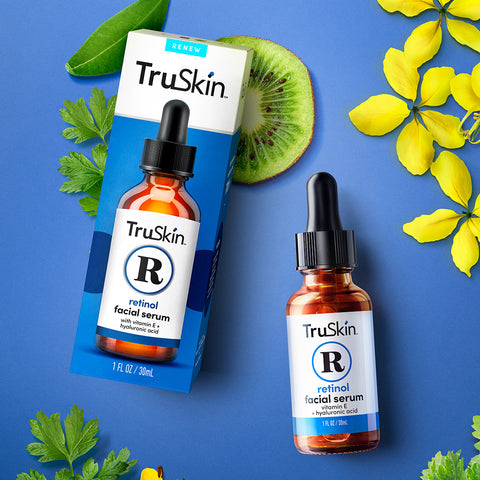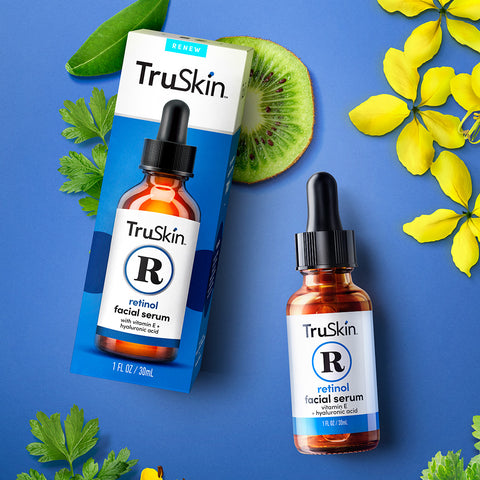
The Best Skincare Routine For Dealing With Dark Spots
From brightening serums and powerful moisturizers to the obligatory sunscreen, here’s everything your skincare routine needs to deal with hyperpigmentation, aka pesky dark spots.
Dark spots get all of us eventually. And whether yours are thanks to teenage acne, more recent hormonal changes, years of sun damage or even skin trauma, one thing’s for sure, dark spots get right under your skin.
While they’re rarely harmful to your health, dark spots, aka hyperpigmentation, appear when your skin produces too much melanin – the pigment that gives your skin, hair and eyes their color. Many factors can trigger an erratic overproduction of melanin but the three main causes are: hormonal changes such as those during pregnancy or the menopause; some kind of skin trauma (bites, burns, acne spots etc.) that didn't heal properly, or the thing we like to quite rightly blame for almost everything, the sun. Certain medications can also create dark, patchy areas on your skin, as can existing conditions like eczema and psoriasis.
So, what can you do to, first off, prevent dark spots for forming in the first place, and secondly help fade the ones you’ve already been lumbered with?
Keep scrolling for the most important products to have up your skincare sleeve.
The Absolute Must: Sunscreen
Of course, like most things in life, prevention is better (read: easier!) than cure. Granted, not all dark spots are caused by the sun, but here’s the thing. Whatever the cause of your dark spots, the sun will make them ten times worse because your skin can’t help but naturally produce melanin when it’s exposed to UV rays. Sometimes, melanin production is smooth and even and you tan, but other times it becomes erratic, uneven and melanin clumps together forming dark, patchy areas on your skin.
It makes sense, therefore, that all skincare experts, including the American Academy of Dermatology agree that your first line of defense against dark spots should be to protect your skin from the sun’s damaging rays in the first place. Stay out of the midday sun, and wear wide-brimmed hats, sunglasses and protective, long-sleeved clothing. And, of course, wear sunscreen. Every day. Not only is a broad-spectrum sunscreen the number one way to prevent dark spots, but it can also help to clear or minimize existing ones as an added bonus.
Try: SPF 30 Mineral Sunscreen with Vitamin C
The Skin Reviver: Exfoliator
Products that exfoliate your skin are the cat’s whiskers for helping to treat dark spots as they help remove dead skin cells from the surface of your skin while improving cellular turnover. But exfoliation isn’t a one-fits-all. In fact, there are two very different ways to exfoliate your skin: chemical and physical exfoliation.
Physical exfoliation is the obvious type that requires a little bit of physical force to work. Think scrubs, loofahs, facial mitts and cleansing brushes. Chemical exfoliation, on the other hand, requires no physical action but instead uses certain ingredients like glycolic, lactic and salicylic acid to dissolve the bonds between the dead skin cells so they shed quicker and more efficiently.
Both types of exfoliation work pretty darn well, so it's really a matter of personal choice. Just remember, go gently and stick to maybe two or three times a week depending on your skin type.
Try: Ocean Minerals Super Toner
The Brightening Superhero: Vitamin C
Antioxidants are an awesome way to ward off the damaging effects of the sun (dark spots, wrinkles, the whole shebang!) because they help neutralize free radicals which form in your skin when it’s exposed to UV radiation.
One of the best and most clinically-proven of the antioxidant powerhouses is vitamin C – specifically when it comes to preventing and fading dark spots. Vitamin C not only gets to work on those aforementioned free radical villains to help reduce oxidative stress and keep your skin healthy, but it’s also been shown to inhibit the production of melanin by decreasing an enzyme in your skin called tyrosinase. And as an extra side? Vitamin C also has impressive anti-inflammatory properties which is key in the fight against dark spots. How so? Because dark spots are often the result of… yes, you guessed it… inflammation.
Triple-action brightening effects right there? You’d better believe it.
If you’re not sure how to include vitamin C in your skincare routine, we believe the best type is sodium ascorbyl phosphate, or SAP to its buddies. SAP is the less potent, but more stable version of pure l-ascorbic acid. This makes it a) way more tolerable for all skin types and b) more longer-lasting since it doesn’t break down and lose efficacy when exposed to light and air. Winner!
Try: Super C Duo with Vitamin C Super Serum+ and Vitamin C Brightening Moisturizer
The Gold-Star Of Skin Renewal: Retinol
Short of doing the washing up and taking the kids to school, there’s very little retinol can’t do. OK, so we exaggerate, but you get the idea of just what an awesome skincare ingredient retinol is, right?
A type of vitamin A, retinol is well-known for its anti-aging and acne-fighting skills, but it’s also a strong contender in the battle against unwanted dark spots. For one thing, retinol stimulates the production of collagen and elastin which improves everything from elasticity and strength to tone, texture and radiance. It also has similar effects to exfoliation in that it accelerates cell renewal, forcing all those dead surface skin cells to beat it.
Retinol is a powerful beast, however, so there are a few important things to remember when introducing it into your regime for the first time.
1. Always do a patch test. No arguments.
2. Introduce retinol slowly, starting with two or three times a week max.
3. Give it a few weeks, then if your skin is behaving OK, up your frequency to four or five times a week.
4. Repeat until you’re applying it nightly.
5. Skin feeling unnecessarily dry, red, itchy or irritated? Then reduce your usage again until your skin acclimates.
6. Be patient. The effects of retinol take time, so don’t expect miracles overnight. You’ll likely need to wait a few months for the best results. But it'll be worth it, promise.
Try: Retinol Facial Serum





















